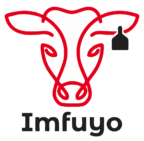Africa has over 336 Million cows—and Kenya, where we at Imfuyo, (formerly known as Lofty Kesho) are based, has over 20 million alone. But what’s my point? Cows, or rather livestock, are found across the whole continent of Africa!
And what about farmers? Almost three-quarters of Africa’s population grow crops and keep livestock. Some key concerns come to mind:
- Is there a way of growing the agricultural sector that favors farmers and enterprises?
- How do we know where are we or what stage are we at in this growth?
- How can technology contribute to answering these questions?
This is an interesting topic—let me grab a glass of water!
You see, for us to even attempt to answer any of the above-listed concerns we need to first ask ourselves: is the data available? The biggest challenge to any livestock sector growth across Africa is the lack of data! Let’s narrow it down.
Just knowing the number of cows, goats and sheep available in a country is not enough: it is important to have all the data variables and metrics of the owners and the animals.
Data need to be available, but not just any data: as far as livestock is concerned, it must be secure, of good quality and validated. For instance, pick my beloved country—Kenya—and just like any other developing nation of the world, data is hard to come by.
What is this data we are talking about? For a country to have proper, air-tight governance and enforcement structure regarding livestock growth, it is critical to have a livestock registry.
But just knowing the number of cows, goats and sheep available in a country is not enough: it is important to have all the data variables and metrics of the owners and the animals. For example…
Imagine if a country were able to not only account for several types of livestock but also provide data metrics such as age, health-production-nutrition histories, weight, length, pedigree information, breed, feeding patterns etc. What if that country then matched all this with “know your customer” (or rather, “know your farmer”) data, such as name, ID, gender, age, status, country, county, village, number of livestock, purchase history of livestock, income levels, other economic activities etc.?
Now, what you’d have is a registry of livestock owners and their livestock!
Imfuyo farmer-training session. Photo: Imfuyo
This “near-perfect registry” would then create a path to the following necessities:
- Data availability
- Secure data
- Quality data
- Data analysis
- Governance and Enforcement
We have to take positive steps forward: this is where digitally tagging cows comes in!
Decision makers in the government and local authorities, as well as economists, would have information on the markets, prices of labor, costs of fodder and more to help fight drought and understand the actual contribution of livestock farming to the country’s GDP.
Since we are not yet at this level of registry and data regarding farmer-livestock information, we have to take positive steps forward nonetheless. This is where digitally tagging cows comes in!
Digitally tagging a cow.
Imfuyo Usajili has interacted with many of the relevant and strategic stakeholders in the farmer-livestock field, giving us clarity on the issues and possible solutions. Taking advantage of Kenya’s Moveable Property Security Rights Act of 2017, which allows livestock to be used as collateral by financial institutions, our mission is to create farmer-livestock profiles using our software and hardware and knowledge of animal health and valuations, animal insurance and asset financing.
By collecting farmer-livestock data we hope to address challenges across the whole value chain.
Think of it this way: livestock is an asset, and like any other, it needs a proper legal structure so it is both insurable and lendable. Having an administrator model ensures that the asset is fit throughout the contractual period of servicing a loan, which in turn mitigates the risk of insurance fraud or asset-financing fraud (what we call “double-pledging”), and contributes to improving local businesses such as farmer co-operatives and veterinary associations as well as insurance companies and banks.
By collecting farmer-livestock data we hope to address challenges across the whole value chain, from the farmers and their livestock to intermediaries and financial institutions, markets and governments. This shared ecosystem forces us to then think of holistic solutions, which means it’s no longer about just data collection but data-driven decisions against validated data.
Kenyan farmer co-operative. Photo: Imfuyo
Improved trust between farmers and stakeholders in the creation of better farmer-livestock products benefits everyone, but above all farmers.
We want to use our blockchain technology to improve businesses’ use and trust of data, especially insurance companies, banks and microfinance institutions that face insurance fraud and double-pledging.
Though blockchain is a system of storing information without a central controlling authority, as the data is secure and trustworthy it allows financial institutions to:
- Fight insurance fraud and problems of wrongful claims against livestock
- Prevent double-pledging of assets
- Insure more livestock, and offer more credit facilities with livestock as collateral
- Store farmer-livestock profiles as tokens, opening up investors and markets for the farmers in any part of their country and the continent as a whole.
Improved trust between farmers and stakeholders in the creation of better farmer-livestock products benefits everyone, but above all farmers: and as we always say at Imfuyo, if agriculture fails then everything does!
